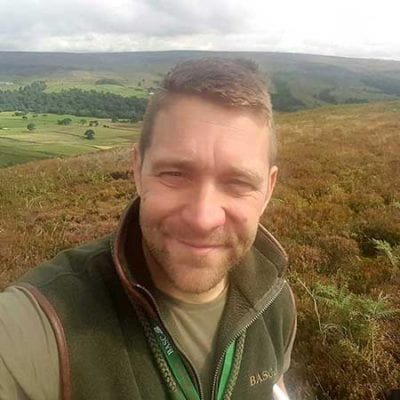Positive impacts of burning recognised by Government

Gareth Dockerty
As the dust settles on the recent Government announcement that vegetation burning on deep peat (40cm or more) will be licensed, it seems appropriate to sum up the past few months then look to the future and what all this might mean in reality.
Let us give the Government credit where it is due, it has not caved into the anti-burning lobbying to ban all controlled burning on peatlands. This is not the blanket ban that the RSPB amongst others has publicly called for. In a world where complex decisions are often reduced to good versus bad, it was refreshing to see an announcement that reflected the complexity of the issues involved.
It is also important to remember this is about peat 40cm and deeper and lots of moorlands have large areas of shallow peat not impacted by this latest announcement.
What has BASC been doing to prevent a burning ban?
There has been a multi-layered BASC campaign to prevent a blanket ban on burning including a real team effort within BASC, linking our political and press teams with the uplands team. Meanwhile, a joint approach with the other key shooting organisations has enabled a coherent strategy and co-ordinated lobbying to take place.
The “Don’t Ban the Burn” BASC brief was sent to thousands of councillors across Northern England and has also been used as a key tool in lobbying MPs. The message to decision makers is to STOP, LOOK and LISTEN before backing a blanket ban on burning and putting the UK’s largest carbon store at risk.
A further bespoke document was also created and most importantly referred to by MPs during the recent Westminster Hall debate on burning and ensured the benefits of burning were discussed and understood. We followed up the parliamentary debate and “Fact Checked” a prominent accusation falsely claiming that 68 per cent of all wildfires are caused by controlled burns in England.
We also monitor the local and national press, ensuring that we provide responses to anti-shooting/burning articles, building key relationships with publications and providing content on key subjects from new angles. This included the “Simply Glorious” advertising campaign on moorland management which ran across national and regional newspapers in northern England and Scotland last summer.
BASC has also written and spoken directly to Tony Juniper (Natural England chairman) on numerous occasions and subsequently George Eustice MP (Secretary of State for Environment, Food and Rural Affairs), urging both to revaluate the burning evidence base and include the latest scientific data.
Extremely important decisions about England’s ‘national rainforests’ cannot be undertaken without long-term studies into the positive and negative impacts of all forms of land management. BASC is proud to be one of a diverse range of 20 organisations funding a ground-breaking peatland study by York University.
What does the future hold?
The government recognised the need to licence controlled burns to reduce the wildfire fuel load on peatlands and for conservation benefits. It also acknowledged that some areas simply cannot be mown and burning would remain an option.
To be clear, moors can no longer simply burn vegetation for the benefit of grouse alone, but this is not a new thought process, the shooting community has long led the way on the benefits of burning to minimise wildfire impacts and for broader conservation efforts.
Worryingly, the Government did not specifically mention the need to consent burns for much needed scientific research. Sadly, I am involved with a frustrating case where Natural England appears to be refusing a consent to burn as part of a long-term study. BASC is helping to lobby against this refusal. It is vital that our knowledge of upland management is furthered prior to any future decisions.
There has been considerable pressure on the Government to make an announcement specifically on burning. However, this will only be part of their new peatland strategy. BASC, along with our partner organisations, has contributed to the peatland strategy consultation process. Our message is simple, the shooting community has been responding and implementing the Government’s objectives on moorland for generations. We continue to provide solutions and should not be viewed as an obstacle in protecting and enhancing our peatlands. Shooting provides the knowledge, equipment, skills and private investment to deliver and we have an open-door policy to work with stakeholders and communities.
This is certainly not ‘job done’. BASC looks forward to working with Defra and Natural England to ensure the intentions of the Government can be implemented efficiently so land managers can continue to use burning when necessary on a site-by-site basis.
